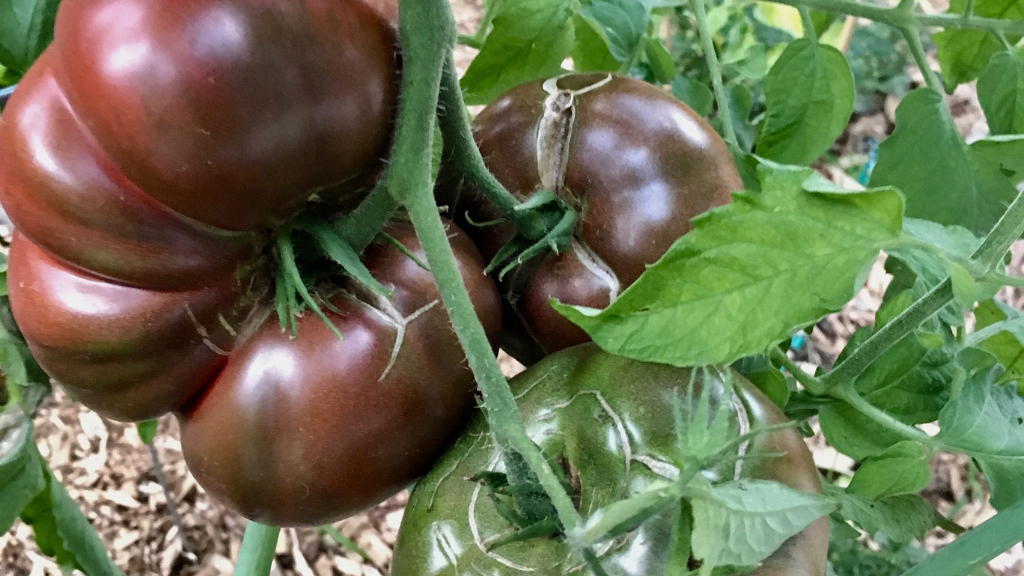
Sign up for the Gardening Know How newsletter today and receive a free copy of our e-book "How to Grow Delicious Tomatoes".
You are now subscribed
Your newsletter sign-up was successful
Step aside Mortgage Lifter and Brandywine. There's a new, ahem, old tomato on the block - Cherokee Purple tomatoes. What are Cherokee Purple tomatoes? Yes, obviously they are tomatoes, but read on to find out more about Cherokee Purple tomato history.
What are Cherokee Purple Tomatoes?
Cherokee Purple tomatoes are and old heirloom, pre-1890, with a mottled tones of brown, green and yes, purple. While the exterior coloring may not be to everyone's liking (it's been compared to a "bad leg bruise"), the interior and flavor more than make up for this, and it is now one of the most popular heirloom tomatoes grown. The flesh of Cherokee Purple is a luscious deep, dark red and the flavor is sublime, a perfect complement of sweet, acid, and savory topped off with a hint of smoke.
Cherokee Purple Tomato History
The discovery, or should I say rediscovery, of Cherokee Purple is all due to a retired chemist from Raleigh, N.C., one Craig LeHoullier. He has one of the largest personal tomato collections in the country and has built a reputation as a tomato aficionado. Along with likeminded tomato connoisseurs, LeHoullier undertook a mission to revive heirloom tomatoes.
In 1990, some tomato seeds were sent to LeHoullier. They came from John Green of Tennessee who said he received them from a woman who had gotten them from her neighbors. The neighbors told her that this cultivar of tomato had been in the family for generations and that the seeds were originally given to them by the Cherokee Indians. After he grew them and loved them, LeHoullier sent some seeds along to friends at some seed companies. They loved them as well, and now growing Cherokee Purple tomatoes in your own garden is possible for everyone.
Growing Cherokee Purple Tomatoes
Cherokee Purple grows well in most regions of the United States in an area with full sun, at least 8 hours. This particular heirloom tolerates humidity and diseases better than other dark hued tomatoes. Because tomatoes require a long growing season, start the seeds indoors 6 weeks prior to the final frost of the spring.
Sow seeds ½ inch deep in well-drained, soilless starting mix in an area with temperatures 65-90 F. (18-32 C.). Keep the seeds slightly moist. This indeterminate type of tomato will grow to 4-6 feet (1-2 m.) and should be spaced 3 feet (under a meter) apart. Transplant the seedlings into the garden in an area of fertile, well-drained soil that is rich in organic matter and with a pH of 6.0-6.8. Tomatoes like to eat, so fertilize Cherokee Purple with an organic blend that is rich in phosphorous and potassium along with a moderate amount of nitrogen.
Stake or cage plants to support the large number of fruit, which will mature within 80-90 days from seeding and is ready to be devoured fresh off the vine, sliced on sandwiches or into salad, or cooked down into sauce for those cold winter months.
Sign up for the Gardening Know How newsletter today and receive a free copy of our e-book "How to Grow Delicious Tomatoes".

Amy Grant has been gardening for 30 years and writing for 15. A professional chef and caterer, Amy's area of expertise is culinary gardening.
